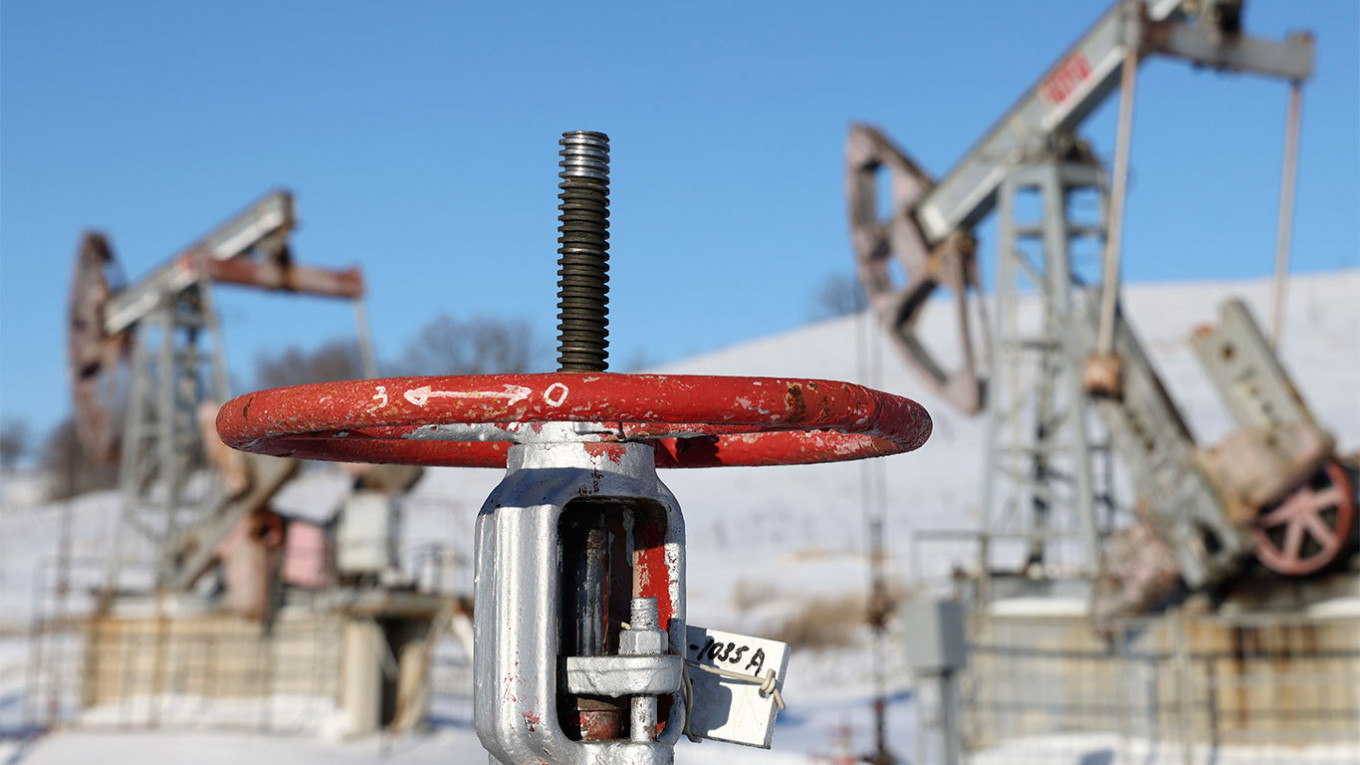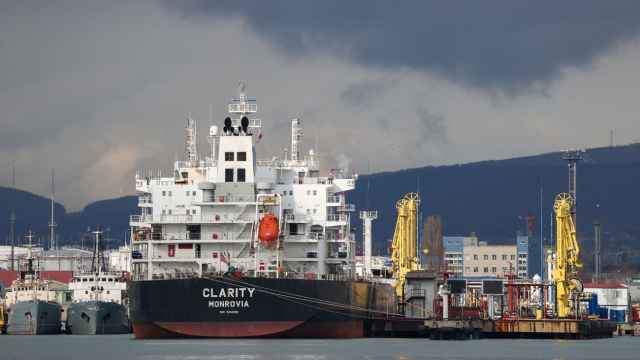Russia announced Friday it will slash crude oil output by 5% next month after Western countries imposed a price cap over the Ukraine conflict.
International crude prices surged after Deputy Prime Minister Alexander Novak said that Russia would "voluntarily" reduce production by 500,000 barrels per day in March.
"This will help restore market relations," Novak said, according to Russian news agencies, adding that the decision was taken by Moscow unilaterally.
Russia is part of a 23-nation alliance with the OPEC crude cartel that already agreed in October to reduce output by 2 million barrels per day until the end of this year.
The West has imposed a slew of sanctions against Russia since the nearly year-old conflict erupted.
An EU-wide ban on Russian oil products — like diesel, gasoline and jet fuel — came into effect Sunday alongside a Group of Seven price cap on the same items.
There are two price cap levels, $100 per barrel for more expensive fuel like diesel and $45 on lower-quality products such as fuel oil.
That expanded on an EU embargo on seaborne oil deliveries introduced in December — when it also established with G7 partners a $60-dollar-per-barrel cap for exports around the world.
Russia retaliated with a decree banning oil sales to countries and companies that comply with the price ceiling.
European Commission President Ursula von der Leyen estimates that the oil price cap costs Moscow 160 million euros ($170 million) per day.
News of Russia's cut to output gave strength to world oil prices Friday.
The international benchmark, Brent North Sea crude, leapt 2.3% to $86.48 per barrel.
New York contract WTI soared 2.5% to $80.01.
Oil prices had already gained support in recent weeks as the economy of top consumer China reopens following the end of almost three years of severe Covid restrictions.
A Message from The Moscow Times:
Dear readers,
We are facing unprecedented challenges. Russia's Prosecutor General's Office has designated The Moscow Times as an "undesirable" organization, criminalizing our work and putting our staff at risk of prosecution. This follows our earlier unjust labeling as a "foreign agent."
These actions are direct attempts to silence independent journalism in Russia. The authorities claim our work "discredits the decisions of the Russian leadership." We see things differently: we strive to provide accurate, unbiased reporting on Russia.
We, the journalists of The Moscow Times, refuse to be silenced. But to continue our work, we need your help.
Your support, no matter how small, makes a world of difference. If you can, please support us monthly starting from just $2. It's quick to set up, and every contribution makes a significant impact.
By supporting The Moscow Times, you're defending open, independent journalism in the face of repression. Thank you for standing with us.
Remind me later.






